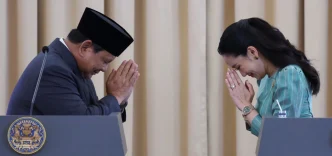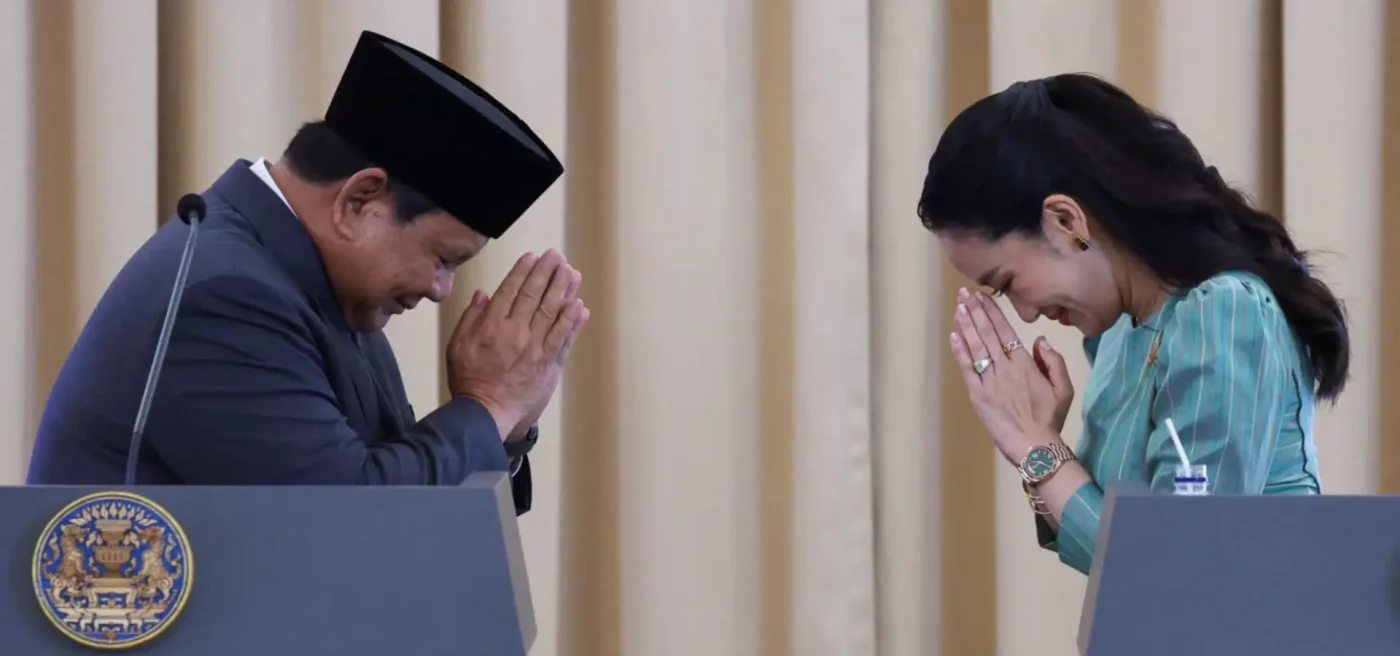In a significant move to enhance regional cooperation, Indonesia and Thailand have pledged to deepen their bilateral relationship across multiple fronts, aiming to fortify the Association of Southeast Asian Nations (ASEAN) as a cohesive bloc. This renewed commitment, announced during high-level talks in Jakarta, underscores the urgency of unity amid global economic uncertainties and geopolitical tensions in the Indo-Pacific region.
Comprehensive Partnership for Regional Stability
The recent discussions between Indonesian and Thai leaders focused on a wide-ranging partnership, covering economic collaboration, security coordination, and cultural exchange. Both nations, as key players in ASEAN, recognize the importance of their alliance in addressing shared challenges such as trade disruptions, climate change, and transnational crime. Indonesian Foreign Minister Retno Marsudi emphasized the strategic importance of this partnership during a joint press conference, stating, “Our collaboration with Thailand is not just bilateral; it is a cornerstone for ASEAN’s resilience and relevance on the global stage.”
Thailand’s Foreign Minister Maris Sangiampongsa echoed this sentiment, highlighting the need for collective action. “ASEAN must speak with one voice, and strengthening ties with Indonesia is a vital step in that direction” he said. The talks, held in Jakarta earlier this week, come at a time when ASEAN faces internal divisions over issues like the South China Sea disputes and the ongoing crisis in Myanmar, making such bilateral engagements crucial for fostering consensus within the bloc.
Economic Synergies: Trade and Investment as Pillars
A central pillar of the Indonesia-Thailand partnership is economic cooperation, with both countries aiming to boost trade and investment. Bilateral trade between the two nations reached approximately 20 billion Thai Baht (US$570 million) in 2024, according to preliminary data from Thailand’s Ministry of Commerce, with potential for significant growth. Key sectors identified for collaboration include agriculture, tourism, and renewable energy, areas where both countries have complementary strengths.
Indonesia, with its vast natural resources and growing consumer market, offers opportunities for Thai businesses, particularly in processed food and automotive industries. Conversely, Thailand’s expertise in tourism infrastructure and logistics could benefit Indonesia’s efforts to develop destinations like Bali and Java. A memorandum of understanding signed during the talks aims to facilitate joint ventures, with a target to increase trade volume by 20% over the next five years. Analysts suggest that such initiatives could serve as a model for intra-ASEAN economic integration, reducing reliance on external markets like China and the United States.
Beyond trade, investment in sustainable projects is a priority. Both nations agreed to explore joint funding for green energy initiatives, including solar and wind power projects in Kalimantan and southern Thailand. This aligns with ASEAN’s broader commitment to carbon neutrality by 2050, though challenges remain in balancing economic growth with environmental goals. “If successful, these projects could set a precedent for regional cooperation on climate action” said Dr. Ananda Putri, an energy policy expert based in Jakarta.
Security and Defense: A United Front
On the security front, Indonesia and Thailand have committed to enhancing cooperation in combating transnational threats such as human trafficking, drug smuggling, and cybercrime. The maritime border between the two countries, while not a direct source of conflict, is a hotspot for illegal fishing and smuggling activities, necessitating joint patrols and intelligence sharing. A senior Indonesian naval officer, speaking on condition of anonymity, noted that coordinated efforts could also deter potential escalations in the Andaman Sea, a critical corridor for regional trade.
Defense ties are also set to expand, with plans for joint military exercises and training programs. This builds on existing frameworks within ASEAN, such as the ASEAN Defense Ministers’ Meeting (ADMM), but adds a bilateral dimension to address specific concerns. While no formal agreements were announced, discussions on counterterrorism strategies were reportedly high on the agenda, reflecting both nations’ experiences with domestic security challenges. Speculation about a potential defense pact remains unconfirmed, and any such development would require careful navigation of ASEAN’s non-interference principle.
Cultural and People-to-People Connections
Beyond economics and security, cultural diplomacy emerged as a key theme in the talks. Indonesia and Thailand, with their rich histories and diverse societies, share deep cultural ties rooted in Buddhist and Islamic traditions, as well as centuries of trade and migration. To strengthen people-to-people connections, both countries plan to increase student exchange programs and promote tourism through joint campaigns highlighting shared heritage sites, such as Borobudur in Java and Ayutthaya in Thailand.
Public sentiment, as gauged through social media platforms, appears largely supportive of these initiatives. Posts on X from users in both countries express optimism about closer ties, with many citing the potential for affordable travel and cultural festivals. One user from Bangkok wrote, “I can’t wait to explore more of Indonesia with easier visa rules and cheaper flights!” Such enthusiasm underscores the grassroots appeal of this partnership, though effective implementation will be key to sustaining public goodwill.
Geopolitical Context: Navigating a Complex Landscape
The Indonesia-Thailand alliance must be viewed within the broader geopolitical context of Southeast Asia, where external powers like China, the United States, and India vie for influence. Both Jakarta and Bangkok have historically pursued non-aligned foreign policies, balancing relations with major powers while prioritizing regional autonomy. Strengthening bilateral ties could enhance their collective bargaining power within ASEAN, potentially influencing the bloc’s stance on contentious issues like the South China Sea, where Thailand has often taken a neutral position compared to Indonesia’s more assertive maritime claims.
Moreover, the partnership sends a signal to other ASEAN members about the importance of internal cohesion. The bloc’s effectiveness has been questioned in recent years, particularly over its handling of the Myanmar crisis following the 2021 coup. While neither Indonesia nor Thailand directly addressed Myanmar during the recent talks, their commitment to ASEAN centrality suggests an implicit push for a unified response to regional challenges. If successful, this could encourage other member states to prioritize dialogue over division, though longstanding differences in political systems and national interests remain a hurdle.
Challenges and Future Prospects
Despite the optimism surrounding the partnership, challenges loom on the horizon. Domestic political dynamics in both countries could impact implementation, with Indonesia preparing for regional elections and Thailand navigating its own complex political landscape. Economic disparities between the two nations—Indonesia’s GDP per capita lags behind Thailand’s—may also complicate efforts to ensure equitable benefits from trade agreements. Additionally, public skepticism about ASEAN’s effectiveness could temper expectations, as past initiatives have often been criticized for lacking tangible outcomes.
Analysts caution that while the intent is clear, execution will require sustained political will and bureaucratic coordination. “Good intentions are not enough; we need concrete timelines and accountability mechanisms” said Professor Wiranto Susilo, a political scientist at Gadjah Mada University in Yogyakarta. There is also the question of how smaller ASEAN nations might perceive this partnership—whether as a model for cooperation or a dominance by larger members.
As Indonesia and Thailand chart this ambitious path, the region watches closely. Their success could reinvigorate ASEAN’s role as a driver of stability and prosperity in Southeast Asia, offering a counterbalance to external pressures. Yet, the road ahead is fraught with complexities, and only time will tell whether this bilateral bond can translate into broader regional unity.















